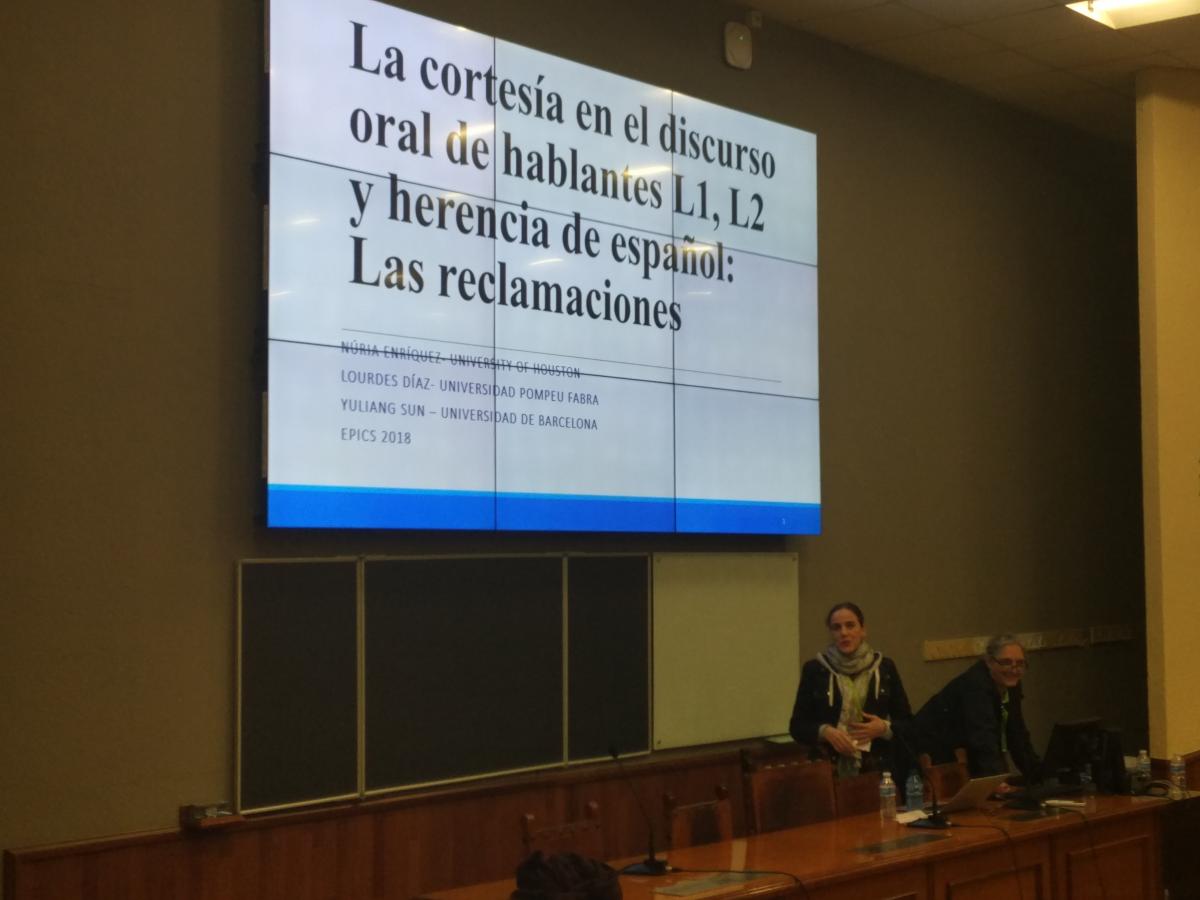Participació de Yuliang Sun al congrés EPICS VIII
Universitat de Sevilla
Yuliang Sun va presentar al VIII International Symposium on Intercultural, Cognitive and Social Pragmatics (EPICS VIII), la comunicació “Politeness in the oral complaints of L1, L2 and Heritage Spanish speakers”, juntament amb les professores Lourdes Díaz (UPF) i Núria Enríquez (University of Houston).
Us reproduïm el resum de la comunicació:
Numerous contrastive studies have been carried out on the use of politeness strategies in requests (Bardovi-Harlig & Hartford, 1991; Blum-Kulka & Sheffer, 1993; Pinto and Raschio, 2007, among others). Likewise, a large number of studies contrasting L2 and Heritage speakers (Potowski, 2014; Escobar & Potowski, 2015; Fairclough, 2003, 2005; Valdés 1981, 1997, 2005) point to the singular characteristics of the language of Heritage Spanish speakers, revealing behavior patterns that are manifested in both L1 and L2 (Valdés, 2000; Toribio, 2004; Silva-Corvalán, 1998; Montrul, 2004). Despite these studies, there is still much to be investigated in the comparison of the use of politeness and compensation strategies in the oral discourse of these three types of speakers (L1, L2 and Heritage). The present paper analyzes the politeness formulas found at different stages of a complaint task. In particular we will focus on the weight of each of the request/apologies coding categories by (Blum-Kulka, 1989, 1991; Bardovi-Harlig, 1991; Koike, 1989; Félix-Brasdefer, 2007, among others) whether canonical or as a result of other compensation strategies, used by all groups of speakers. For our study, we designed a role-play consisting of a phone complaint after a purchase of a bus ticket, resulting in the creation of the StopELE oral corpus. StopELE oral corpus consists of the native production of 5 Peninsular Spanish speakers and 5 Mexican Spanish speakers acting as control group; 10 intermediate level Heritage speakers from Houston area and 10 L2 intermediate Erasmus students. In order to account for linguistic and cultural variation in L1 Spanish we balanced the number of Peninsular Spanish and Latin-American Spanish speakers in the control group. The results obtained are compared with previous studies on politeness and intercultural pragmatics (Blum-Kulka et al. 1989; Koike, 1989; Félix-Brasdefer, 2007; Gutiérrez & Fairclough, 2006), and show that Heritage group uses a repertoire which is between L1 and L2 groups. L2 speakers, in turn, use more compensation strategies.
These findings constitute a useful teaching tool to avoid conflicts and reinforce identity and culture across communication and cognition.
